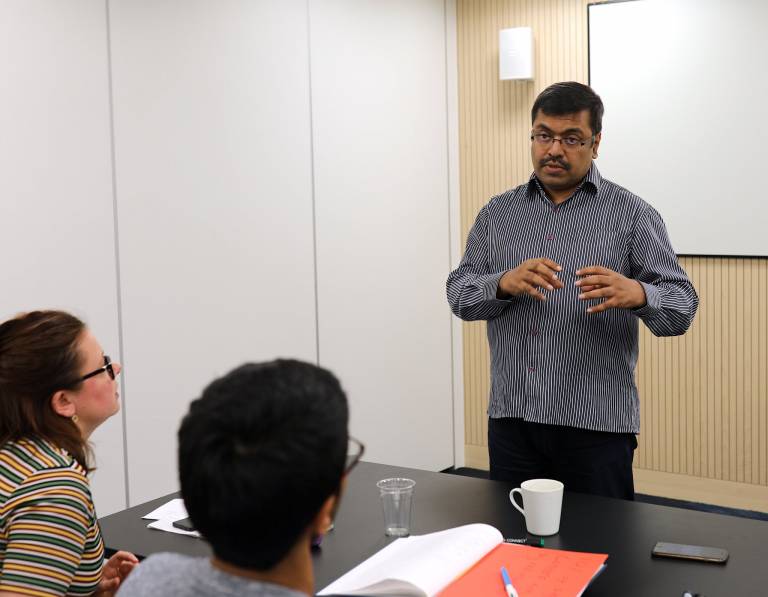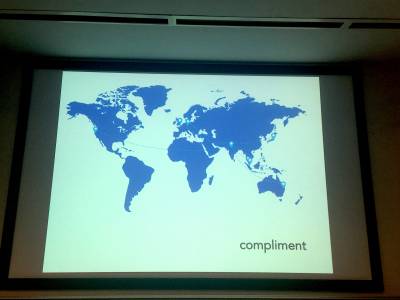Visit from India helps UCL scientists to nurture frugal mindset in research
12 October 2018
We welcomed back our international collaborator Professor Prashant Jha, from the All India Institute of Medical Sciences, to run a series of workshops and lectures on frugal innovation.

The trip was his third to UCL and it built on earlier workshops and teachings from his previous visits. Prashant is a life-long frugal innovator developing medical technologies in a simple and affordable manner. He is Director of the world-renowned Stanford-India Biodesign programme (SIB). The SIB programme is funded by the Indian government’s Department of Biotechnology and is a joint collaboration between Stanford University, All India Institute of Medical Sciences(AIIMS) and Indian Institute of Technology (IIT-D).
The SIB programme is world-acclaimed for its phenomenal success in training the next generation of frugal health-tech leaders. It has produced innovations ranging from an affordable fetal monitoring device that aims to reduce stillbirths to a splint made of low-cost cardboard that allows the temporary protection of injured limbs.
The emphasis was on replicating and nurturing this frugal mindset within UCL scientists and our ongoing healthcare engineering research. These savings can then be taken into the NHS, a particularly pressing imperative as the NHS faces its own current resource constraints.
Prashant stressed the importance of interdisciplinary interaction and the need for creative thinking and fresh perspectives whilst developing innovations. He advised workshop attendees, “Talk to people who are completely unrelated to you as much as possible. Cross-pollination of ideas leads to innovation.”

PhD student, Rebecca Baker, who was in a workshop with Prashant said, “It is not very often that I have an opportunity to discuss my own research project with people outside of my group and it is even less often that I am challenged to look at my work from a different perspective. I have come out of the workshop with a clearer understanding of where my research fits into a patient’s personal timeline and how important it is to look at the bigger picture, rather than just the tiny details.”
Prashant also kicked off our IHE Colloquium Series with a keynote lecture on Monday 8 October. During his lecture, he made it clear that he takes enormous pride in seeing the students that have been produced through the SIB programme going on to make a global impact in healthcare. The output from the SIB programme has led to 16 patents that have become products, eight companies working in 23 countries and two million lives affected.
There has been a real commitment to supporting frugal innovation ideas that have come out of previous visits and encouraging future collaborations, for instance a fully funded PhD studentship was given for a project finding affordable ways to diagnose sepsis. The SepSence project aims to produce an early diagnostic and stratification kit for sepsis. We are committed to continuing to grow these kinds of projects and will be keeping you updated with the next steps in our partnership.
 Close
Close

